Posted on 10/24/2017
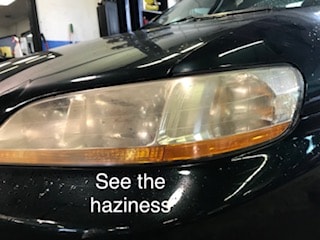
For our #TuesdayTravelTip: With #Daylight savings just around the corner Sunday November 5th, 2017(remember spring forward---Fall back turn clocks back an hour). You still have time(pun intended) to get those headlights checked out, with the days getting even shorter, and we have longer darker hours. Driver vision is compromised at night, negatively impacting depth perception, color recognition and peripheral vision. Making sure your headlights are maintained is an important maintenance step to take. · Replace before burnout: Headlights can dim over time, so replacement before burnout is suggested. The lifetime of a halogen bulb is around 500 to 1,000 hours. · Always swap in pairs: It’s very important to replace headlights in pairs. Since headlights dim over time, a new bulb paired with an old bulb creates an un ... read more
Posted on 10/23/2017
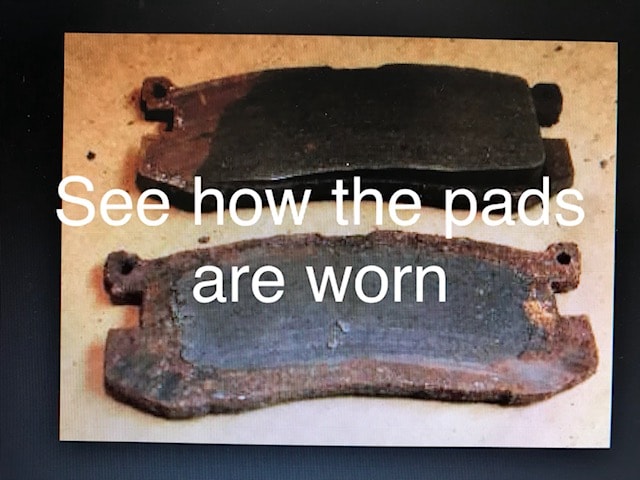
“What does Brake Noise tell you?” Ever wonder "what that Noise is when I brake?" Is it a grinding noise? That can tell you that possible rust is building up on the rotors. Caught soon enough and the rust can be removed and grinding noise stops. If the grinding persists, that could indicate a more serious problem and should not be ignored. Are your Brakes making loud squeals? Disc Brakes have a wear indicator, as it wears down it starts squealing which tells you to change the pads. What about trace squeaks or squeals? Semi-metallic brake linings can emit sound. If rain, humidity or cold first thing in the morning, brakes cn make that sound. As with the other sounds don’t ignore if it continues during the day, have the brakes checked out. Are the Brakes making a Clicking sound? This also may be accompanied by a slight pulsing in the brake pedal at low speeds. It could very likely be the Ant-lock Braking System performing a harmless self-check. Quick revie ... read more
Posted on 10/18/2017
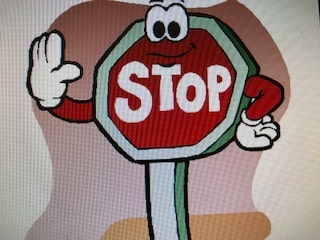
Here are some ways in everyday driving that you can damage your car: 1.You’re not giving your car enough time to warm up. The oil which is necessary to prevent wear on between moving parts,doesn’t work as well when it’s cold. 2.You’re shifting into drive while the car’s still rolling backwards. I admit I’ve done that myself, the problem with this, while it’s not a major issue when going very slow, it still stresses the #transmission parts. Easy fix: when backing out of a parking spot put your foot on the brake and allow your car to come to a complete halt. Then shift the car into drive and head out. 3.You’re filling your radiator with nothing but water. The #coolant also, prevents corrosion, besides just cooling your engine. Galvanic corrosion(you have iron, steel, aluminum, etc.) the different metals tend to react with each other, can ruin an engine as you put miles on your car. If you have good antifreeze it stops corrosion, so u ... read more
Posted on 10/16/2017
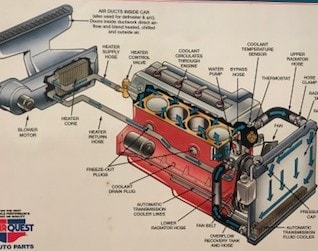
From the radiator to water pump your cooling system keeps your car running down the road. Driving your car, your engine produces lots of heat, and keeping that heat in check is the critical job of the cooling system. The cooling system is comprised of the following parts…. Water Pump, Radiator, Thermostat, Hoses, & Coolant. Common Problems cars have with the cooling system. Broken Hoses, Broken fan belt, faulty radiator cap, water pump failure & Head gaskets of course with every day wear these items will break down. But Preventive Maintenance can save you $$$, by taking a little extra time and regular visits to your favorite mechanic(Rick’s Auto Service in Mishawaka) . Let your mechanic know if there is leaking, overheating or any coolant leaks. Check all belts and hoses regularly. (at oil change is a good time). Adjust as needed. Change your coolant every 2 - 3 years depending on the manufacturers recommendations. You can check the free ... read more
Posted on 10/16/2017
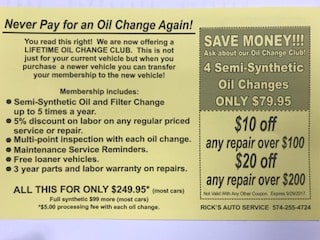
LIFETIME OIL CHANGE Fight inflation, as the price of oil and parts increase, it never will for you!!(THIS IS FOR YOUR LIFETIME, IF YOU BUY ANOTHER VEHICLE IT TRANSFERS TO THAT VEHICLE!). That's the beauty of this, no matter how many cars you may own over YOUR LIFETIME, it transfers. So the next time you are at Rick's Auto Service here in Mishawaka, IN
Posted on 10/12/2017
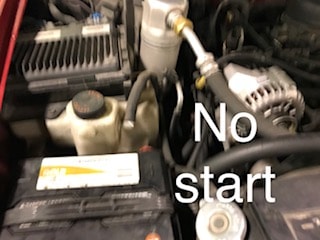
Engine cranks but won’t start. It gets interesting, so a crank/no start is when you turn the key and you can hear the engine moving but it’s not catching and running. You can first eliminate all the above causes in this article, you’ve confirmed that your starter, cables and battery connections are likely good. If they weren’t, you wouldn’t hear the engine turning over when you turn the key. There are a few causes of this type of no-start, but we will cover the basics. An engine needs three things to run: A fuel supply; without fuel, the engine won’t run. A spark(for gasoline-powered engines). The spark is delivered to the combustion chamber via the ignition system. If you have a fault here, the engine won’t start. Mechanical integrity. 2 parts to the timing: the correct ignition timing: spark plug needs to fire at the proper time, and you need the engine to be mechanically in time the piston and the valves need to be working in conc ... read more
Posted on 10/10/2017
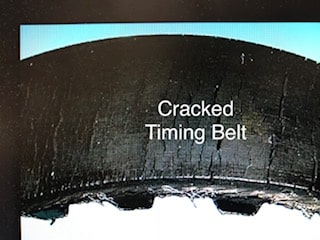
The timing belt is the belt that controls the camshafts in your engine, opening and closing valves at just the right time for smooth operation. The timing belt has teeth that turn the camshaft in time with the crankshaft. Some cars and trucks use timing chains or gears, which are more durable. Typical Wear and Tear Key items that affect the replacement interval for belts and hoses: Vehicle age Electrolytic corrosion Mileage Oil contamination Belt tension Failed hose clamps Symptoms Squeaking noise from under the hood during start-up or operation Coolant leaks Dashboard light will illuminate A/C System may fail Engine overheating Smell of burnt rubber
Posted on 10/9/2017
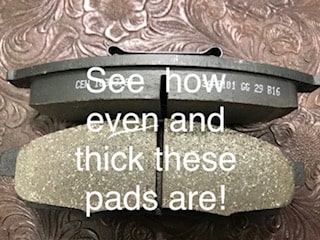
With October being "Brake for Breast Cancer" awareness, thought we would take a minute to inform you about your BRAKE SYSTEM. Your car’s brake system is its most critical safety system and you should check it immediately if you suspect any problems. A properly operating brake system helps ensure safe vehicle control and operation under a wide variety of conditions. When you push the brake pedal, the force generates hydraulic pressure in the master cylinder. This pressure flows through the hydraulic lines and hoses to the wheel cylinders and calipers, forcing the shoes against the drums (drum brakes) and the pads against the rotors (disc brakes). The resulting friction slows the vehicle and is relative to the amount of force applied at the brake pedal. Brakes are a normal wear item for any car and eventually they’re going to need replacement. Avoid letting your brakes get to the “metal-to-metal” point, which usually means expensive rot ... read more